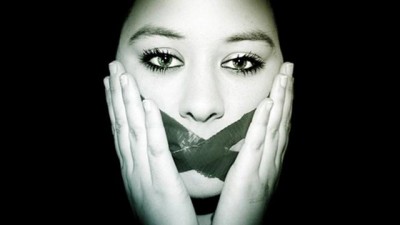The History of Free Speech in Australia
Free Speech Confusions: Australia’s Q&A Program

Monday’s discussion on Australia’s Q&A program, an open forum supposedly designed to bring voices to an open stage of feted experts and pundits, turned on a few confusing points on free speech. The discussion demonstrated a sharp divorce from those engaged in the artistic sphere, and those engaged politically.
This artificial distinction, and consequential segregation in Australia, is a typical one, a separation borne from a poor understanding about the history of free speech. For one, it assumes a neat incision between the political and the artistic, ignoring the obvious point about the role of art as political, not to mention politically motivated.
Much of this came through in the link between satire, cartoon depictions and politics advanced by the late Bill Leak. A discussion about a person’s legacy over decades of work became focused on one cartoon in particular, featuring a negligent, not to mention absent minded aboriginal father, beer in hand, gazing at his child whose name he could not remember. All on the panel roundly condemned it as “inappropriate” and “racist”, a sad feature of his “later” work.
The limited conversation gave Canadian singer and panelist Martha Wainwright a moment of smugness, suggesting that Canada had, miraculously, solved its own First Nations’ dilemmas and instituted a regime that would not have allowed Leak “to have gotten away with it.” A member in the audience had to be ejected after cries of “Bill Leak was a racist!” made their way to the panel.
What did stand out was the panel’s anemic view about free speech. Children’s story teller Mem Fox, for instance, had a markedly insipid perspective by assuming that bandying out speech had something to do with being polite, a skin-crawlingly limited notion of boredom at an unchallenged table. Having been detained at a US airport on entering the country for having misunderstood which visa covered her circumstances of entry into the country, decency was her weapon.
“We are fighting for the right to be insulting and offensive. This is most odd.” Considering the anti-clerical doctrines and secular stances that characterised the European Enlightenment had every bit to do with penetrative insult as it did with political debate, Fox’s view is the odd one out, a true humdinger.
Suggesting that political and artistic debate is somehow a cosy gathering of courtesy and idle gossip at the vicarage tea party, Fox was incredulous. (Having been ignorant of US visa regulations, she showed even more ignorance about the history of free speech.) “Why would people want to be insulting and offensive? What is good in that? What good did hate ever do anybody? What country did hate make an improvement in?”
Hate, targeted, informed, and pure, overthrew murderous, starving tyrannies, saw the beheading of corrupt, parasitic monarchs, and the drafting of revelatory constitutions, of which the US model remains, arguably, unmatched. This species of fury and focused indignation was, it could be easily said, hate with a sharp, discernible cause – that against the Hanoverians in one sense; that of the French revolution against feudalism and its monarchical backers. The list how such ideas win out is endless.
The safety valve many Australian public figures keep using to combat uncomfortable ideas is a smothering paternalism. Paternalism protects the insecure, a soft feathered crutch of comfort against the itch of knowledge. Australians, Edenic, afraid, even terrified in their isolation, love father despite occasional feminist reflexes, and wish he would never go away, for fear of thinking beyond areas of comfort.
“I think if you have a platform as he did,” claimed Indigenous actress and singer Ursula Yovich on Leak, “you do have to have some kind of responsibility with what you put out there. I’m all for free speech.”
Except the sort of speech that is obviously discomforting, needling and even hurtful. Her background, for instance, rich, with a Serbian father, has less traction than her other half. Politically appropriate thinking requires certain ideas that exclude others: I am indigenous, and therefore, untouchable in debate.
What Monday’s conversation tended to ignore were other concerns that have tended to hollow out, if not entirely sabotage, the notion of free speech in the Australian context. The issue of what might amount to discussing a “special intelligence operation” and its existence, comes to mind. The chilling effect of the so-called super-injunction, a legal device that prevents discussion, not merely of the legal case it concerns but the very fact of its existence, is another.
As Katherine Gelber has previously explained, “While the 18C debate [on racial discrimination] has raged, important new restrictions on freedom of speech have been introduced in Australia. These have flown much under the radar.”
Like wounded babes in the wounds, these creatures in swaddling clothes went back into the Adelaide evening happy that they had articulated views less than mature, and generally incomplete. Instead of showing artists as brave and formidable, they suggested a view of them as meek and ill-informed. It was not one of the better advertisements for art, and even suggested that dull, machine-directed politicians might be the better creatures for this sort of program.
As usual, matters were left to David Marr, long a scribe of reflection and poise, to suggest the problems with the Australian approach to free speech. Regarding Leak, he was “free to draw and the Australian free to publish – cartoons attacking black people and Muslims. But surely it is not news to a newspaper that citizens have free speech too.” All in a muddle, down under.
Dr. Binoy Kampmark was a Commonwealth Scholar at Selwyn College, Cambridge. He lectures at RMITUniversity, Melbourne. Email: [email protected]

